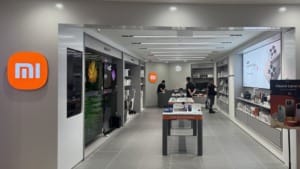Chinese EV makers urged to expand globally despite tariff challenges
Chinese EV makers are urged to expand globally despite rising tariffs. Industry experts stress the need for overseas production and strategic partnerships.

Chinese electric vehicle (EV) manufacturers have been urged to speed up their global expansion despite increasing trade barriers and tariffs. Industry experts and government officials highlighted the need for a stronger international presence at the China EV100 Forum in Beijing on Friday.
Su Bo, former vice-minister of China’s Ministry of Industry and Information Technology, said the country’s auto industry is still in the early stages of globalisation. He pointed out that Chinese car brands struggle with low recognition overseas and lack experience in navigating international trade challenges.
“The rapid transformation in the global automotive and transport sectors provides Chinese EV makers significant opportunities to enter international markets,” Su said. He stressed the importance of balancing exports with local production to avoid policy risks and build stronger partnerships abroad.
He also called for regulators and industry organisations to study Chinese EV makers’ challenges in foreign markets and provide guidance and support. Additionally, Su urged car manufacturers to actively participate in global negotiations on industry standards, particularly in critical areas such as EV minerals, batteries, automotive chips, and autonomous driving.
Rising tariffs add pressure to global expansion
The forum, attended by top executives from China’s leading carmakers, took place just two days after the United States announced a 25% tariff on all imported vehicles starting next month. Chinese carmakers already face a 100% tariff in the US and additional tariffs of up to 35% from the European Union.
Tang Liming, chief strategy officer at Geely, pointed out that traditional automotive trade through direct exports is becoming less viable due to geopolitical tensions and shifting consumer preferences. He noted that China’s auto export growth slowed to 21% in 2024, a sharp decline from 80% in 2022.
“There is still a lot of room for improvement when comparing the depth and quality of China’s automotive exports with those of Japan, Europe, and the US,” Tang said. He also highlighted structural imbalances, with Chinese auto exports heavily concentrated in only a few countries.
Zhang Yongwei, general secretary of the forum organiser China EV100, emphasised the importance of exploring diverse and innovative approaches to international expansion. He suggested that Chinese manufacturers set up overseas production facilities and joint ventures with foreign companies to develop vehicles tailored to local markets. This strategy, he said, would also help foreign carmakers benefit from China’s advanced EV supply chain.
Chinese EV makers expand global footprint
Several Chinese EV companies are ramping up their international strategies to counter rising tariffs and domestic overcapacity. Companies like BYD, Hozon, Geely, and Xpeng have started building Southeast Asian factories. At the same time, manufacturers are expanding into emerging markets in South America, the Middle East, and Central Asia.
Last month, Geely announced a partnership with French carmaker Renault to produce and sell low-emission and electric vehicles in Brazil. Similarly, in 2023, Chinese start-up Leapmotor partnered with Dutch automotive giant Stellantis to manufacture and sell cars outside China.
“Globalisation is not a choice; it is a necessity,” Geely’s Tang said. “The transition to electric vehicles is not a zero-sum game. We need to work together to create a sustainable future.”
















